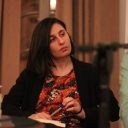Since late April, images and videos emerging from the protests in Tbilisi, Georgia, have stirred a range of emotions from disbelief to outrage. Hundreds of thousands of Georgians have taken to the streets in response to the controversial “Law on Transparency of Foreign Influence”, which was re-introduced in early 2024 after being withdrawn in March 2023.
This law, dubbed the “Russian law” by its critics, would require NGOs to register as “agents of foreign influence” or “organisations carrying the interests of a foreign power” if more than 20% of their total revenue comes from foreign sources (which is the case of the majority of the civil society organisations (CSOs) and independent media sources in Georgia). At the time of writing, on May 14, 2024, Georgian Dream, the ruling party passed the law amid the largest mass demonstrations in the country´s latest history. See the Solidarity Statement by Dalan Fund, Women’s Fund in Georgia, and Taso Foundation outlining the situation and calling for international action.
Against this backdrop, the week of April 21st, over 450 funders have landed in Tbilisi to participate in the Ariadne Network Annual Conference and the Human Rights Funders Network’s Funding Futures Festival. Having these funder gatherings coincide with the protests directly spotlighted the complexities and the realities of the Caucasus and broader Central Eastern Europe, Caucasus and Central and North Asia (CEECCNA) regions that at large have not been receiving a lot of attention from the funding community on the global stage.
Following the collapse of the Soviet Union in 1991, these regions have briefly attracted the attention of Western funders, bringing the ideals of liberal democracy and human rights with their funding priorities. At this time, the democratic pendulum swung back and forth across every country in these regions.
Freedom House’s ‘Nations in Transit’ has been reporting this dizzying shift for the last 20 years, highlighting the increased deterioration of open democratic progress across these regions. According to the 2024 report, eight countries of CEECCNA qualify as consolidated authoritarian regimes, meaning that the regime has successfully dismantled or co-opted the institutions of democracy. The remaining countries are considered ‘hybrid regimes’, also known as an “illiberal democracy” or “competitive authoritarianism”. Despite the initial surge of interest and investment from international funders, many organisations have departed from these regions in the past decade. This exodus can be attributed to a combination of shifting priorities among the funders and the mounting challenges posed by increasingly repressive governments.
As a part of our research: Where is the Money for Intersectional Movements in Central Eastern Europe, Caucasus, and Central and North Asia (CEECCNA) Regions? (to be published later this year), we aimed to bring about structural change in funding modalities in and for the CEECCNA regions. We conducted a survey that revealed several critical funding trends across Central Eastern Europe, Caucasus, and Central and North Asia between 2019 and 2023. These include:
- The dominance of emergency funding: The research findings suggest a disproportionate focus on short-term reactive funding available only in times of crisis, rather than long-term strategies for human rights and civil liberties.
- Loss of funding: The situation worsened after Russia’s full-scale invasion of Ukraine when donors changed strategy and moved money from the South Caucasus and Central Asia to Ukraine.
- Lack of multi-year funding: The absence of long-term stable and flexible funding, and enormous amounts of time spent on reporting and filling in applications exhausts organisers and keeps them in precarious situations.
The Funding Futures Festival and Ariadne conference presented a critical moment for funders to engage with the intricacies of these regions and explore innovative ways to support human rights initiatives in Georgia and beyond. This gathering also encouraged the funding community to pay closer attention to these often-overlooked regions and recognise the important work being done by local organisations and activists on the front lines of the fight for democracy and human rights.
We invite Western philanthropy, and all who attended the HRFN Festival in Tbilisi, to embrace that very enthusiasm and boldness for funding dissent, resistance, and resilience of organising across these regions with a new flavour, following these recommendations from us:
- Trust the people in and from the regions: “Just one in 10 grant dollars for Eastern Europe and Central Asia is granted directly to in-region recipients as flexible support”. Fund mechanisms and funds created for, and by the people from the regions.
- Fund boldly and creatively: Give unrestricted long-term funding to mechanisms and the funds in, for, and in front of the regions to make decisions on how, to whom, and in what shape the funds get distributed.
- Respect diverse forms of organising and advocacy: Understand that visibility and success may look different in various contexts. In more authoritarian regimes, creative and discreet forms of resistance are crucial for the safety and effectiveness of activists. As a Central Asian activist shared, “Underground work is invisible, but the more authoritarian the regime, the more creative our ways of resistance”.
- Do not reproduce dependency: The funding model that currently exists with short-term funding and the NGO model of organising creates dependency on funders in unhealthy ways. We need funding that will ensure that the end goal is “self-elimination, doing our share of work, reaching the point where we are not needed,” – activist from Georgia.
The current moment in Georgia is demonstrating that the CEECCNA regions are going through a defining moment and we invite funders from around the world to stand with us right now. Together we can make history bend toward achieving these regions’ self-determination, freedom, and access to human rights for all.
Established in 2023, the Dalan Fund (DF) is a multi-regional fund resourcing intersectional social justice movements in Central and Eastern Europe, Caucasus, and Central and North Asia (CEECCNA). DF transforms how CEECCNA regions are resourced, fostering resilience and the collective power of intersectional social justice organisers and movements in and for the regions.
Nukri Tabidze (they/them) is a freelance researcher and activist, an anthropologist by profession and passion.
Angelika Arutyunova (she/her) is an Armenian feminist resource consultant and activist from Uzbekistan, living in the diaspora in the U.S. She is a co-founder of Dalan Fund, FRIDA: The Young Feminist Fund, and a lead on multiple Where is the Money research projects.
Aizada Arystanbek (she/her) is a socially engaged researcher from Kazakhstan. Her interests include intersections of gender, culture, coloniality, and nationalisms in Central Asia. She is currently doing her Ph.D. in Sociology at Rutgers University
Salome Chagelishvili (she/her) is a feminist activist from Tbilisi, Georgia. She is the executive director of the Women’s Fund in Georgia, engaged in feminist movement building and resourcing.










Comments (0)